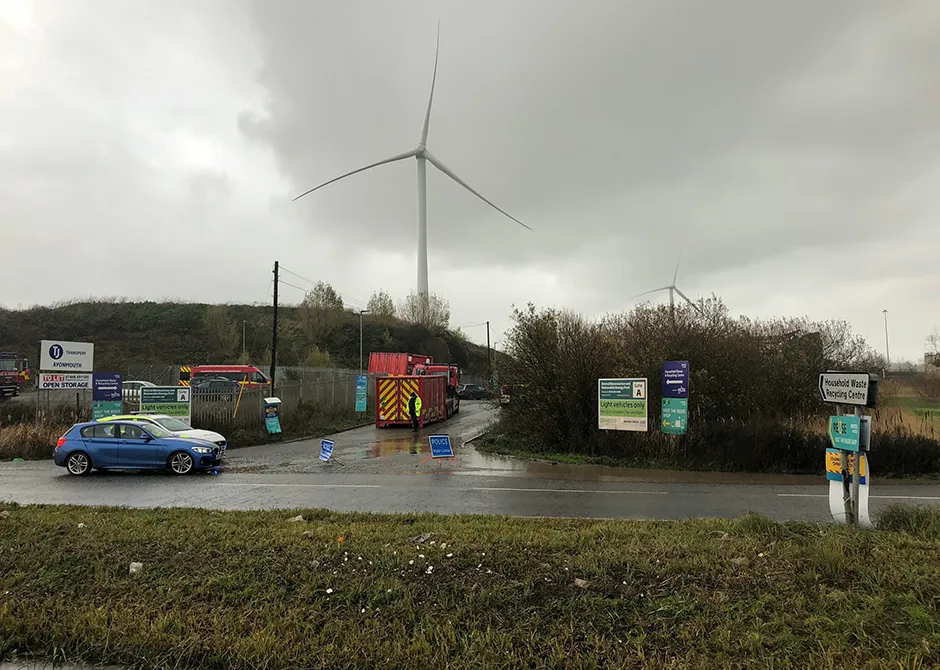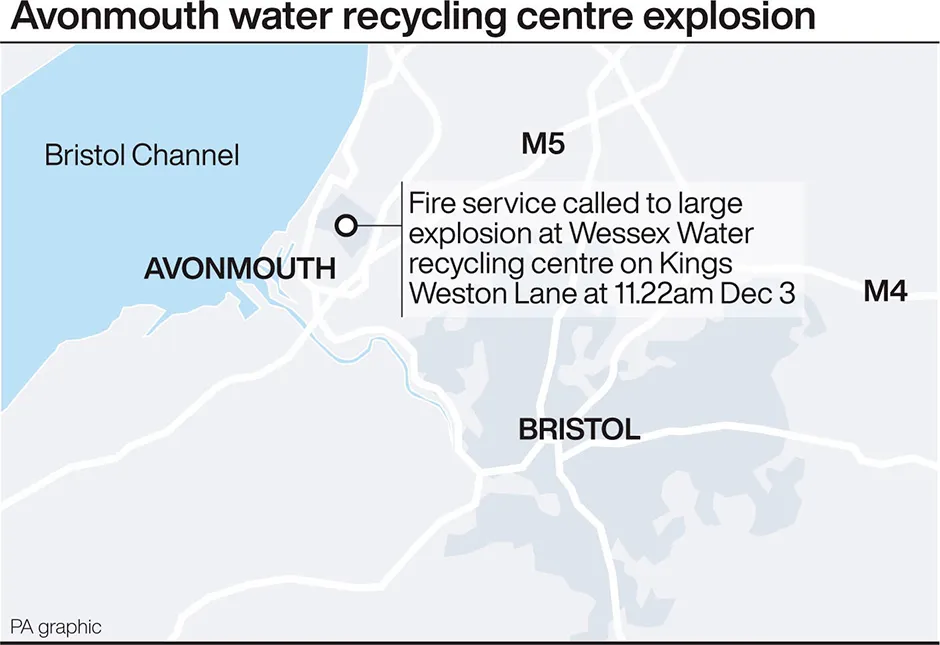Police have said the explosion at Wessex Water’s Bristol water recycling centre in Avonmouth happened in a silo used to treat biosolids, though the exact cause of the blast is still to be determined.
What are biosolids?
Biosolids are “treated sludge” – a by-product of the sewage treatment process.
According to Wessex Water, the sludge is treated in anaerobic digesters – oxygen-free tanks – to produce agricultural fertiliser and renewable energy.

So how does the sewage treatment process work?
Wessex Water says during the sewage treatment process debris such as rags and large objects are removed first using screens.
The sewage flows into tanks where the solids sink to the bottom and are removed as sludge. The sewage is then treated biologically by passing through filters with bacteria growing on them that feed off the waste and clean the water.
Why do we use biosolids?
According to Bristol-based waste management service GENeco, biosolids provide a “cost-effective alternative to bagged fertiliser” and help improve the fertility of agricultural land.
“Increasing the organic matter helps improve soil structure, giving plants better roots and helping them to yield more," said Neil Sims, biosolid recycling controller.
Sean Hill, director of waste management, adds that recycling sewage sludge helps supply essential nutrients back to the soil and provides “a successful blueprint for a sustainable future” for the planet.

Are biosolids dangerous?
Biosolids can produce flammable methane gas when treated with bacteria, though police could not comment as to whether this was the cause of the explosion and said the investigation was ongoing.
“The substance responsible for the explosion might well have been methane which, as is well known, is formed in sewage treatment," said Professor Clifford Jones, visiting professor at the University of Chester. “Sewage at an advanced state of treatment can form sewage sludge dust, which is capable of a dust explosion.”
Will there be any fallout from the explosion in Avonmouth?
Luke Gazzard, from Avon Fire and Rescue Service, said there was not thought to be any further safety concerns to people living in the nearby area following the incident.
There will be an investigation into the blast involving the Health and Safety Executive and a number of agencies.
Reader Q&A: What happens to toilet paper?
Asked by: Nina Perkins, Knutsford
Toilet paper is made from short cellulose fibres, which is why it tears so easily. In water, those fibres quickly come untangled and form a thin sludge that’s easily carried by the water flow in the sewage system.By the time it reaches the sewage treatment plant, most of the toilet paper has completely disintegrated, and goes straight to the sludge digester tanks to be broken down into compost, along with the actual poop.
Anything more robust than toilet paper, such as flushable wipes, doesn’t break down, though, and has to be removed using a system of mesh filters, before going for landfill or incineration.
Read more:
